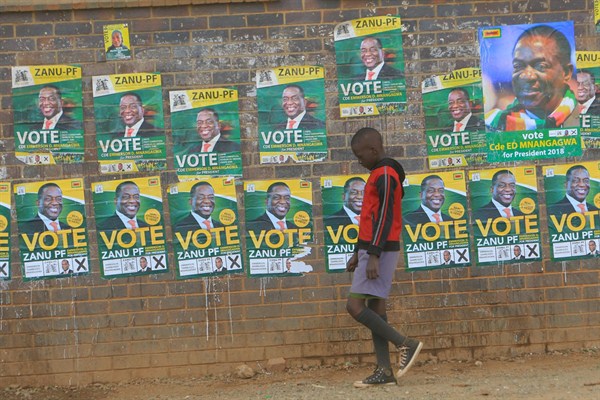The oldest man in the world lives in Zimbabwe. His name is Phidas Ndlovu, and he is 140 years old.
At least, that is according to Zimbabwe’s Biometric Voters’ Roll, which was compiled ahead of the presidential and parliamentary elections scheduled for July 30. The vote is a milestone in Zimbabwean politics—the first held since the ouster of longtime President Robert Mugabe in November last year, and the first time in the history of independent Zimbabwe that Mugabe’s name will not appear on the ballot.
But as much as the country’s political landscape has changed in the past eight months, much has remained the same, not least when it comes to concerns over the credibility of the voting process. The last two elections, in 2008 and 2013, were undermined by well-documented irregularities. Opposition parties complained that their supporters were prevented from registering to vote, and civil society organizations documented hundreds of thousands of “ghost voters” on the rolls. Journalists recorded widespread acts of intimidation and violence against the opposition, committed by both government forces and supporters of the ruling ZANU-PF party.

